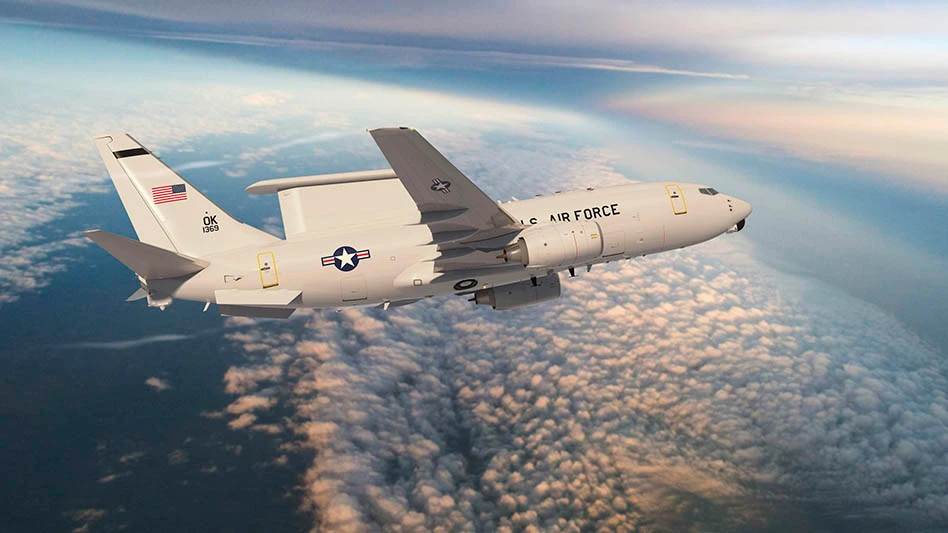
Boeing
The U.S. Air Force awarded Boeing a $2.56 billion contract for two rapid prototype E-7A airborne early warning and control (AEW&C) Wedgetail aircraft. The contract includes lifecycle development, training, and support for the Air Force’s E-7A fleet.
The E-7A Wedgetail provides targeted tracking and battle management command-and-control capabilities to joint forces. The E-7 AEW&C platform is currently in service with the Royal Australian Air Force, Republic of Korea Air Force (designated E-737 Peace Eye), and Turkish Air Force (designated E-7T Peace Eagle).
“Global operators are proving that the E-7 AEW&C is a critical node for air superiority in the modern battlespace,” said Boeing Vice President and E-7 Program Manager Stu Voboril. “In our partnership with the U.S. Air Force, we’re focused on stable, predictable execution to deliver crucial mission-ready capabilities today. This will put us on the path for the long-term growth of the aircraft and mission.”
Built on the Boeing 737-700 NG airframe, the E-7 AEW&C aircraft offers lower operating and sustainment costs, higher mission readiness rates, and interoperability among a growing global user community.
“Our customers have an urgent need for integrated battlespace awareness and battle management,” said Dan Gillian, vice president and general manager of Boeing Defense, Space & Security’s Mobility, Surveillance & Bombers division. “The E-7A is the airspace lynchpin to continuously scan the skies, command and control the battlespace, and integrate all-domain data providing a decisive advantage against threats. With our open systems architecture approach, capabilities can be rapidly inserted over time as threats evolve.”
In addition to the rapid prototype E-7A AEW&C aircraft being built for the U.S. Air Force, Boeing is currently producing three E-7As for the Royal Air Force, with military modifications underway in the United Kingdom. Additionally, NATO has selected the E-7A as its preferred AEW&C solution.
Together, the Royal Air Force, Royal Australian Air Force, and U.S. Air Force have a Wedgetail tri-lateral cooperation agreement relating to E-7 aircraft capability development, evaluation and testing, interoperability, sustainment, operations, training and safety.
Get curated news on YOUR industry.
Enter your email to receive our newsletters.Latest from Aerospace Manufacturing and Design
- Revitalizing the Defense Maritime Industrial Base with Blue Forge Alliance
- Safran Defense & Space opens US defense HQ
- Two miniature absolute encoders join US Digital’s lineup
- Lockheed Martin completes Orion for Artemis II
- Cylinder CMMs for complex symmetrical workpieces
- University of Oklahoma research fuels UAS development
- Motorized vision measuring system
- Everyone's talking tariffs





